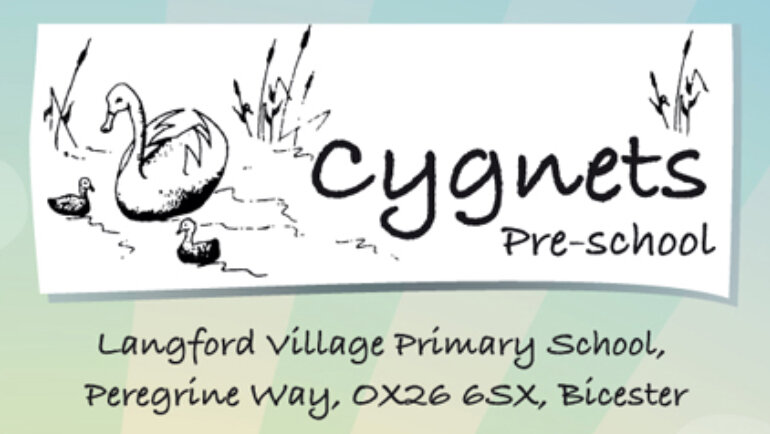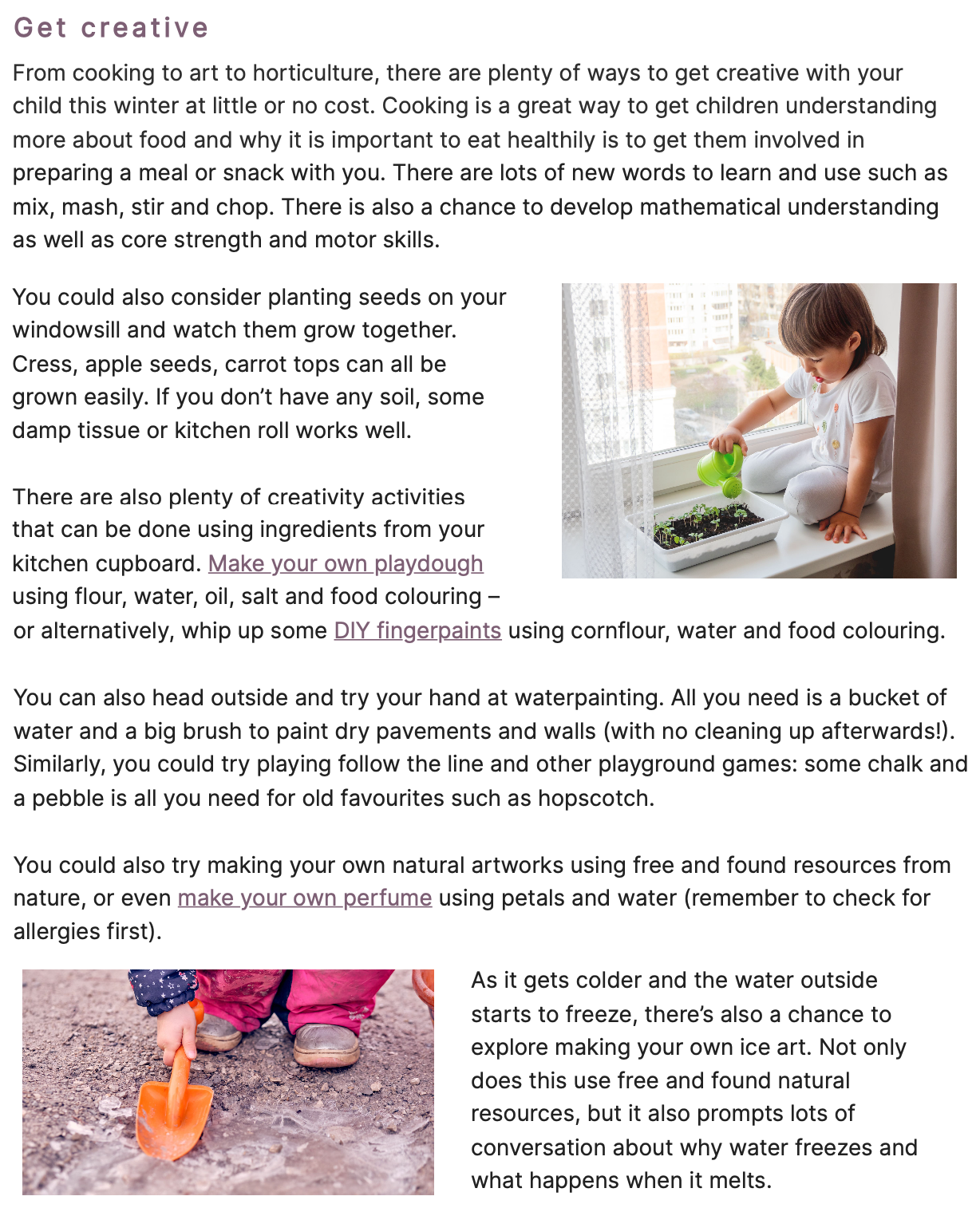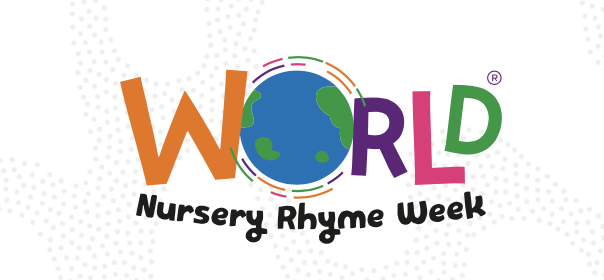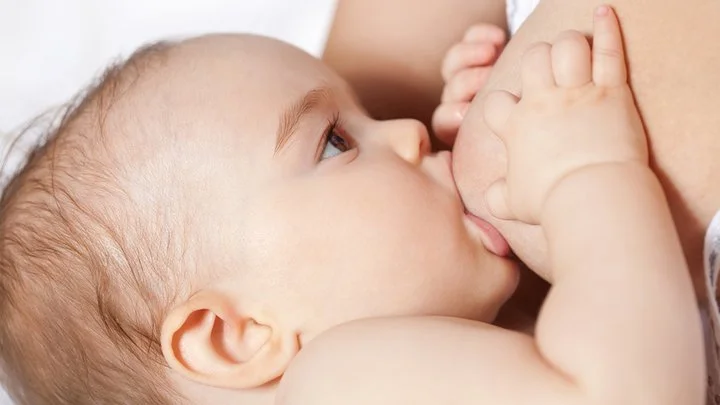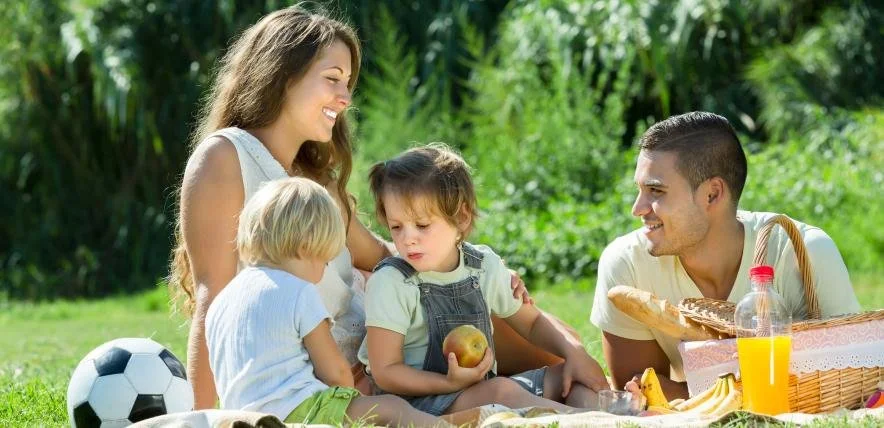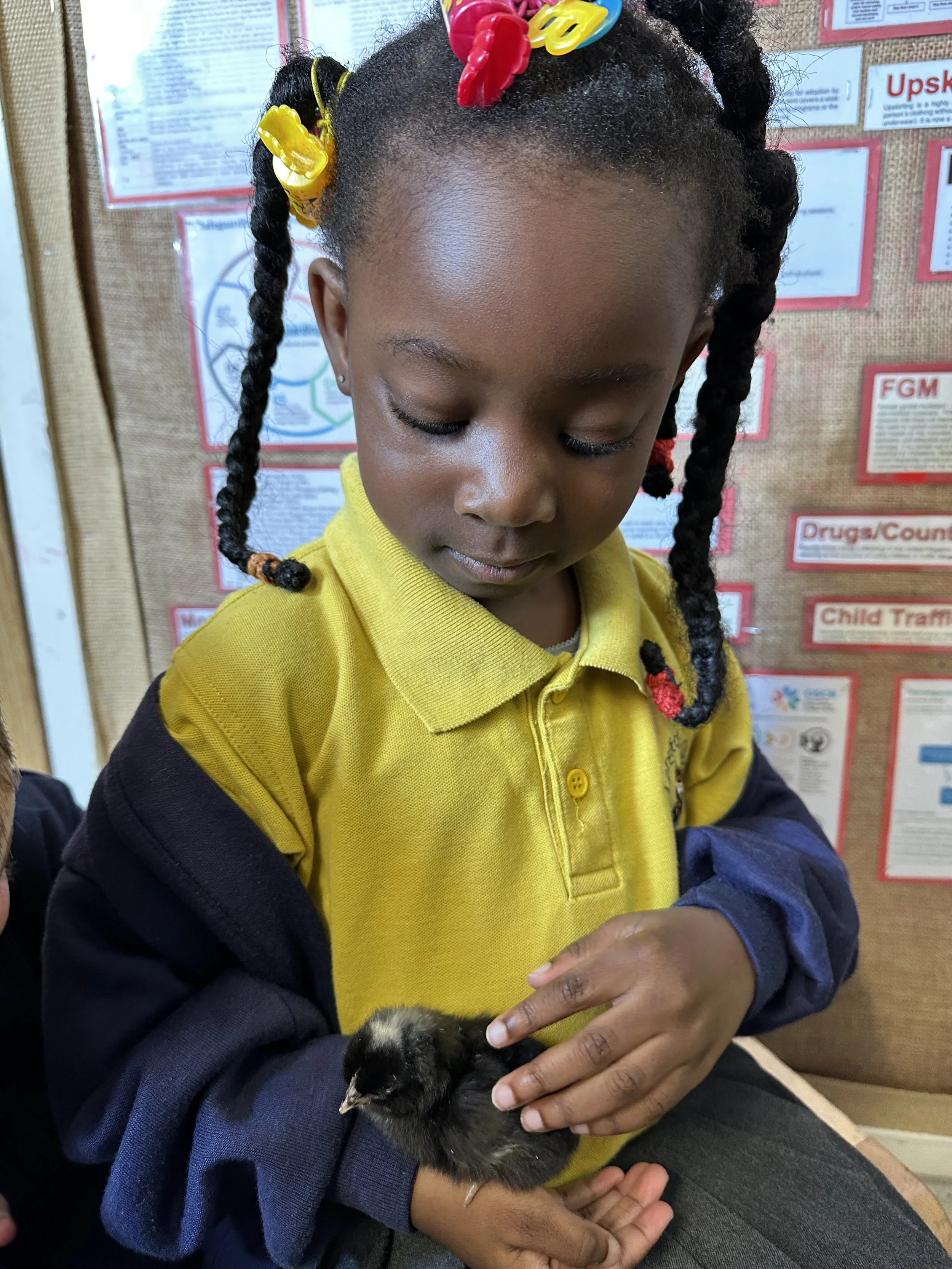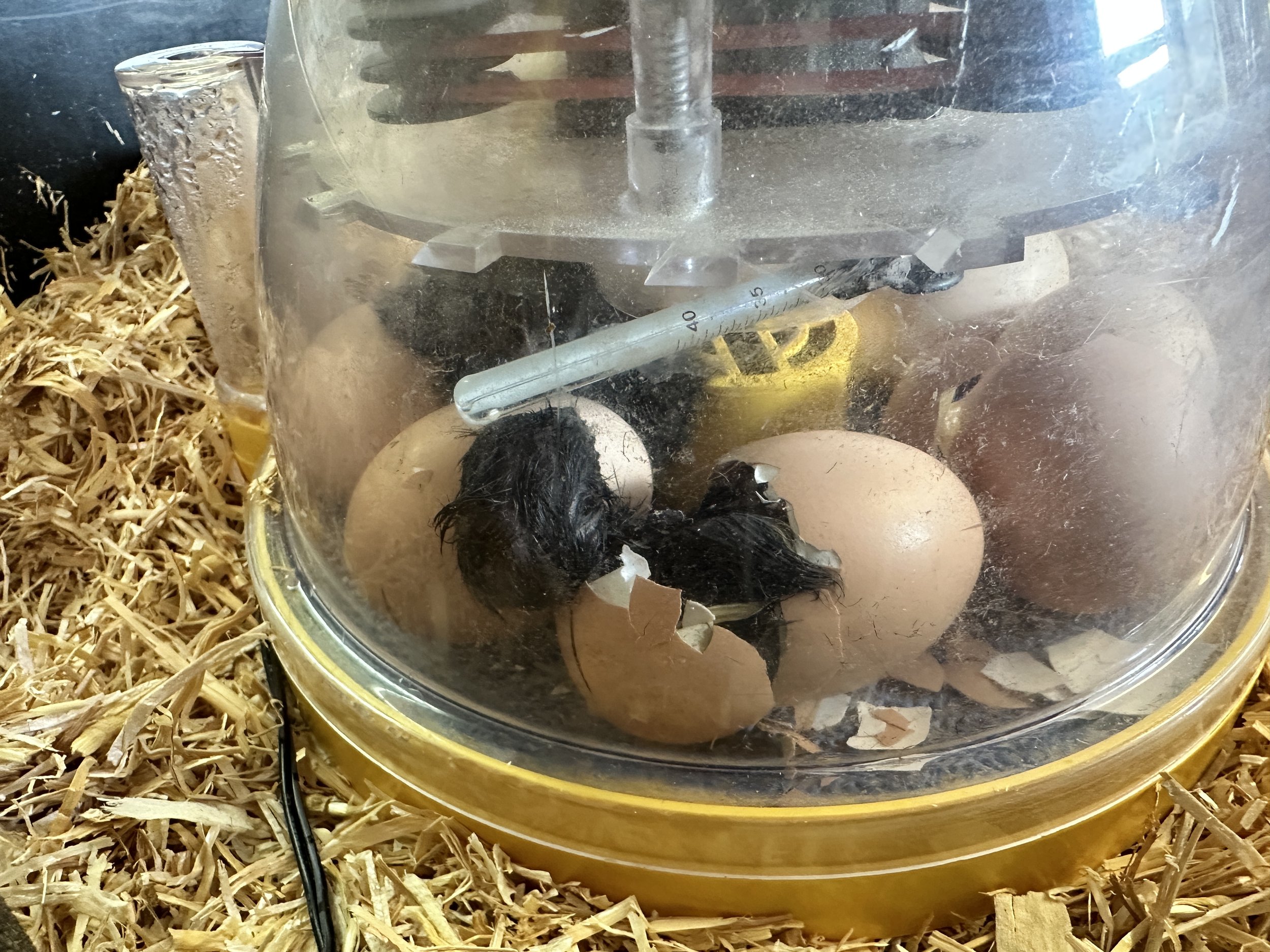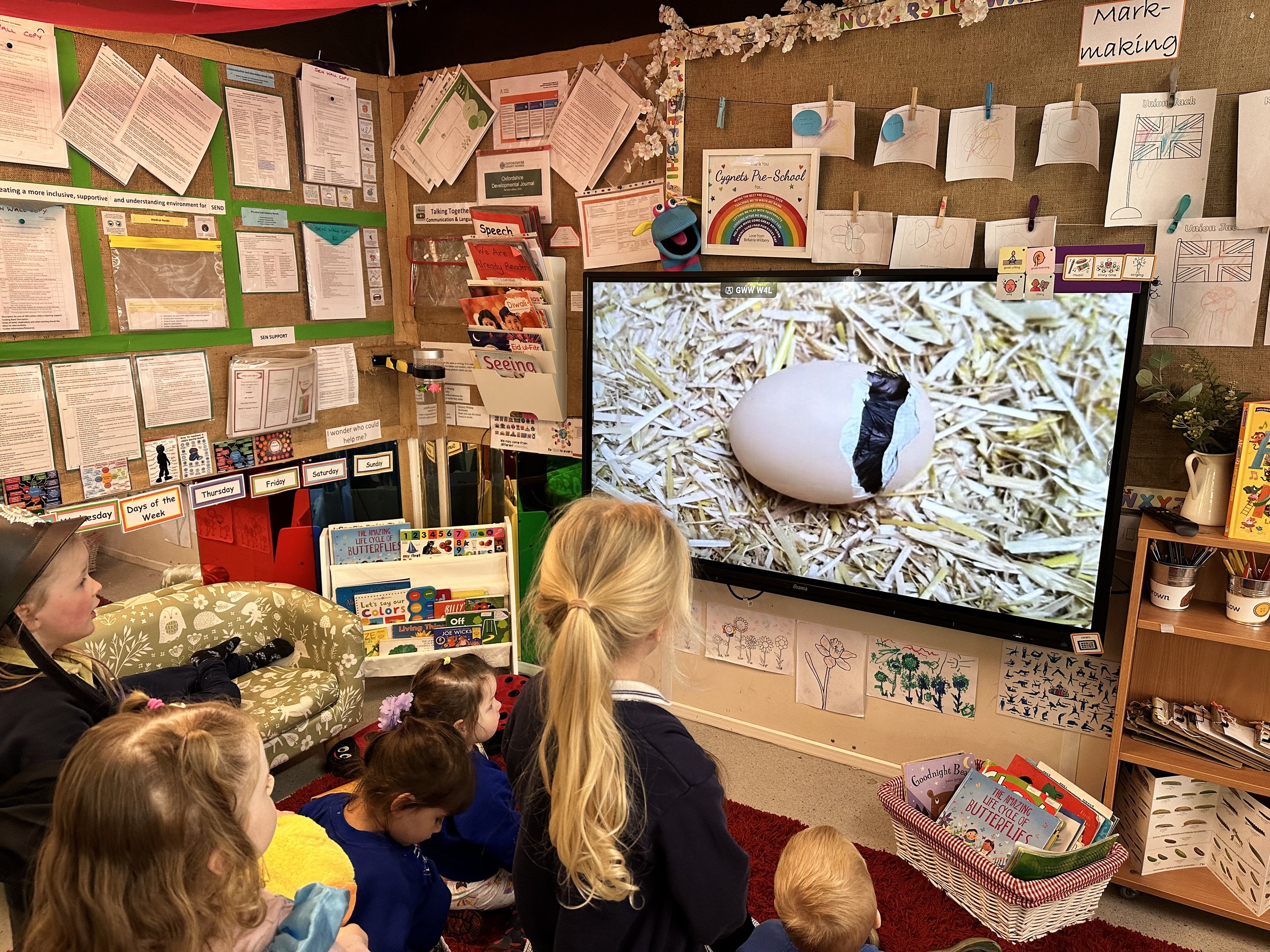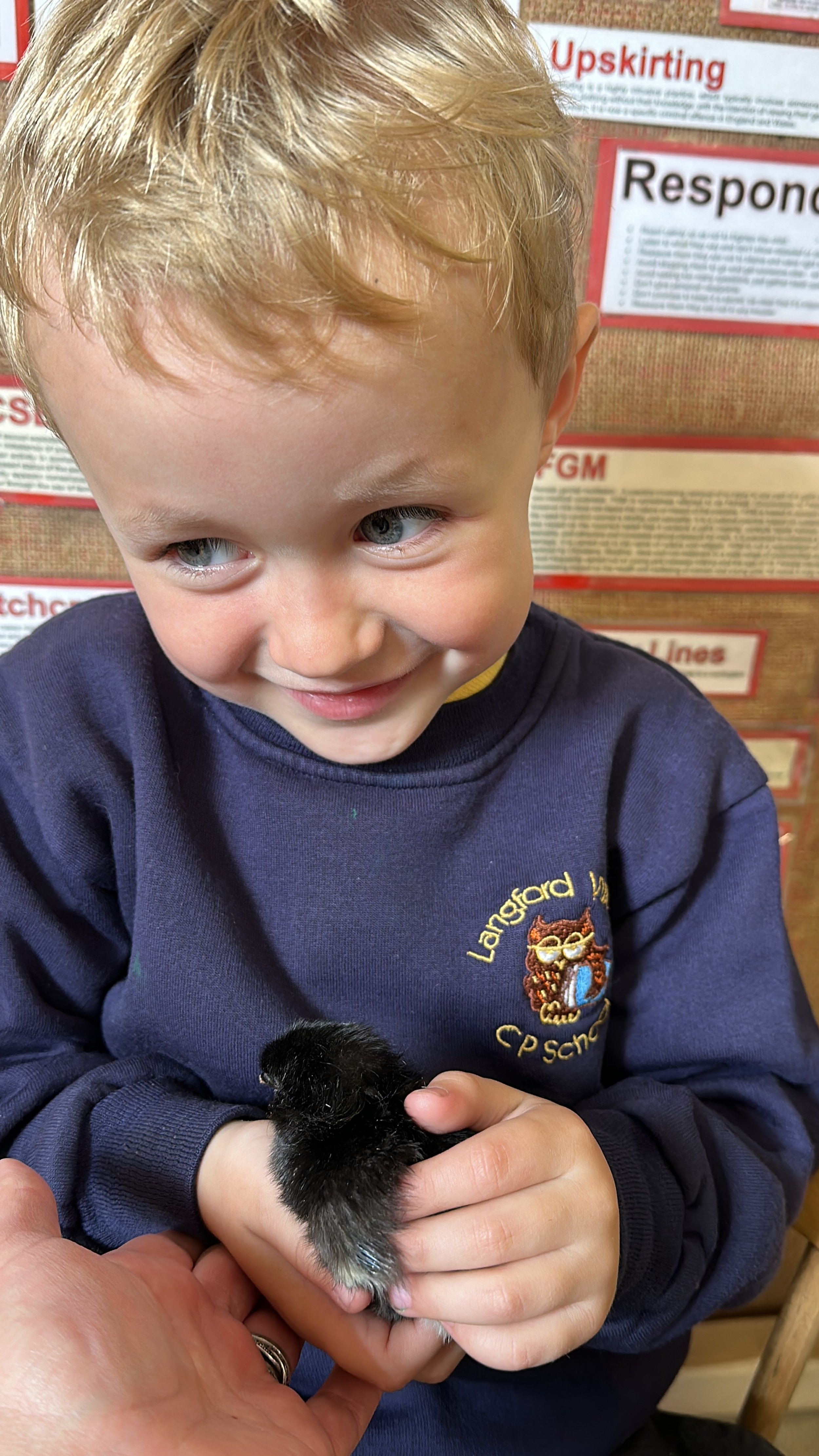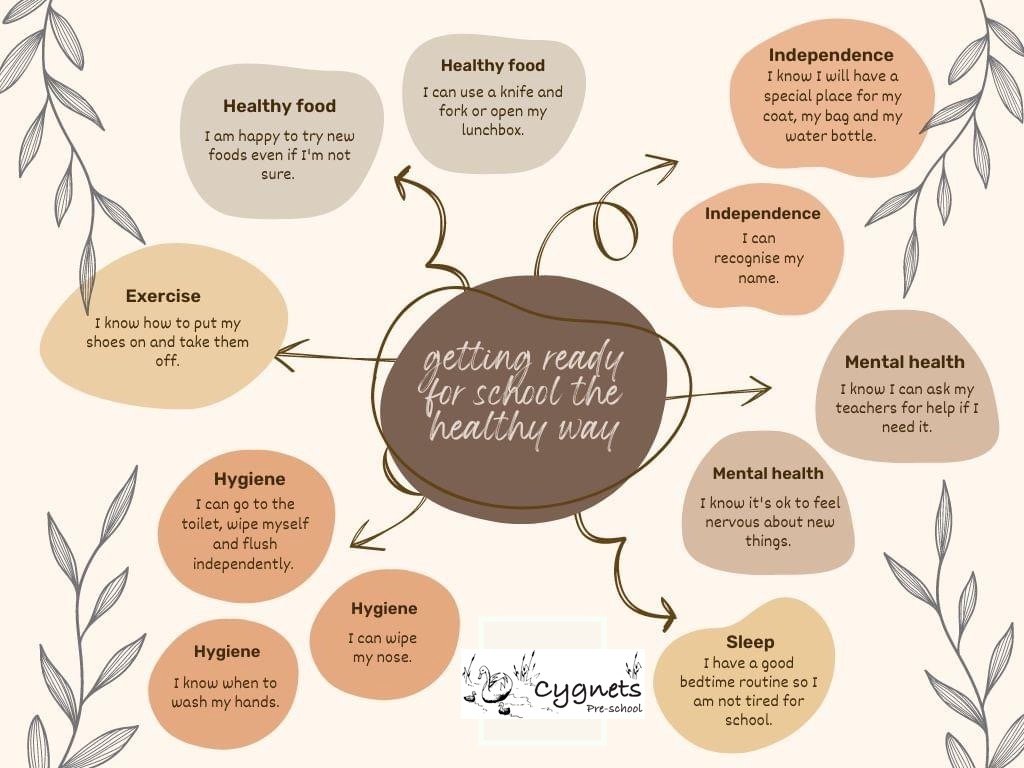Family Fun at Hill End
FEBRUARY HALF TERM FAMILY FOREST DAYS
A wonderful day out exploring the 67 acre Oxfordshire site with family and friends.
The theme this half term is ‘bird nesting’ – Make your own nesting box, feeder or bird watching binoculars. Create your own giant nest in our den building area, follow a trail for interesting bird facts, visit our bird hide, play and enjoy our space, woodlands and wetlands.
The tickets are £9.50 per adult and £9.50 per child, which includes a jacket potato or soup and a hot drink and run on Wednesday 14 February, 10am – 2pm and Thursday 15 February, 10am – 2pm
Book here: https://hill-end.org/activities/upcoming-events/
FAMILY BUSHCRAFT SATURDAYS
Learn how to survive and thrive at Hill End! These fun monthly sessions change with the seasons.
Learn how to select and use natural materials to live sustainably in the woods. Activities might include: Foraging - Camp cooking of breads - Stews, grills etc (including stone-age ‘no pot’ methods) - Fire lighting methods and fire management - Woodwork; making tools such as butter knives, mallets, and pot hangers - Tracking and trapping - Shelter building - Knots, basketry, and cordage.
Sessions cost £12 adults / £8 children and run from 10am – 12pm on the following dates: 16 March 20 April 18 May 15 June Book here: https://hill-end.org/activities/upcoming-events/
Supporting parents to 'make the most of every moment'
As the Governments new 'Little Moments Together' campaign launches, free help and support for Parents across England is now available at local family hubs in the 75 local authorities involved.
The Start for Life campaign aims to 'provide free resources and advice to help parents make the most of every moment - even waiting for a bus or shopping together - to further their child’s development.'
With around £300 million being invested in the family hubs and new campaign, parents will be able to access services such as, advice and support, early language and communication support, and mental health and wellbeing support from fully trained staff. The aim is to enhance support and Start for Life services for families with children aged 0-19 years, and 0-25 years for children with SEND, across the country.
New findings from an online survey which took place in November 2023 have revealed that 83% of parents are unaware that their child’s brain is 90% grown by the age of five, shedding light on a critical gap in parents’ understanding of the impact they can have in these crucial early years. It is hugely important that this is therefore being recognised by the government with support and investment.
Early learning and development - Start for Life - NHS - NHS (www.nhs.uk), sets out the importance of early brain development and shares lots of ideas, easy tips and activities you can do together with your child.
Helping to support your children's communication and language?
The Early Years Alliance will be running their free online family festival, Home is where the start is, for the second year running!
During this fun family event, which will take place via Zoom, they will share information and advice about how parents and carers of under-fives can support children’s learning and development at home through lots of exciting sessions for them and their children.
This year's event will focus on how parents and carers can support their children's communication and language development, and will include sessions on bilingualism, Makaton and music, movement, rhythm and rhyme ... and and much, much more.
The three-day online festival will run from Thursday 22 February to Saturday 24 February 2024, and parents and carers can book to attend as many or as few free sessions as they like.
Families can sign up for their free sessions at bit.ly/FamilyFestivalEYA2024
Healthier Together
Healthier Together is a new website and app for parents and carers, providing information from local healthcare professionals about what might be wrong when your child is unwell.
Using an easy-to-follow traffic light system, you’ll find clear information on common childhood illnesses, including what signs to look out for, when and where to seek help if required, what you should do to keep your child comfortable and how long your child’s symptoms are likely to last.
https://www.oxfordshire-healthiertogether.nhs.uk/parentscarers/child-unwell-ok-go-nurseryschool
The website also features a translation tool, a directory of local services to support your family’s health and wellbeing, as well advice on whether your child should go to school when they have a virus or infection. Using the self-assessment triage tool, the Healthier Together App will provide advice on which healthcare provider can help depending on your child’s symptoms and give the option to contact them directly from the app.
World Nursery Rhyme Week 13th-17th November
Today marks the start of World Nursery Rhyme Week, a global event to celebrate and highlight the importance of nursery rhymes in early childhood. There's a particular focus on the development of social skills and crucial language and communication skills.
Nursery rhymes have a huge impact on a young child; they teach them new words, help them to recognise sounds in words, teach toddlers where words begin and end in sentences, boost fine and gross motor skills, they're great for developing early maths skills, and they help to build their emotional awareness.
National Breastfeeding Week 18th - 24th September 2023
National Breastfeeding Week will be taking place from 18th - 24th September. This year will continue and build on last year's theme, 'Everyone has a part to play in helping mums to breastfeed'. This will include daily themes and activities showing how families, community, health and education services all have a part to play in supporting mothers to have the feeding experience they hoped for.
A new social media toolkit will be available two weeks ahead of National Breastfeeding Week (no later than Monday 4th September), to support partners engage with and promote the week. We will be back in touch to let you know when this is ready.
Additionally, we have an extensive suite of free resources and campaign materials to help support any planned activity, to promote local activities and signpost your local population to our breastfeeding support tools, such as the Start for Life Breastfeeding Hub.
Co-Parenting
When you’re co-parenting with a former partner, there are particular hotspots that can trigger conflict. One of those hotspots is the holidays.
Holidays are a time when some of our most precious memories are made. Because of that, the idea of not spending them with your children can be really tough.
At The Co-Parent Way, we encourage families to plan out the holidays a year in advance, so that everyone knows what they’re doing. Last-minute planning and dividing up your children’s time is stressful and unnecessary, especially if you’ve been co-parenting for a while.
Co-parenting advance for the holidays
Here are five co-parenting tips to help you navigate school holidays:
Divide holiday time fairly
Work out how many days’ holiday your children have and divide it up in a way that works for you both. That could mean you have the same number of days each, or that one of you takes February, May and October half-terms, and the other takes Easter and then you split the summery holidays and Christmas. However you do it, make it fair. If it’s genuinely fair, you’ll reduce the risk of arguments and your children will feel that they have access to you both.
Don’t leave it until the last minute
Decide the holidays as early as possible. If you’re able to decide what’s happening a year in advance, then you’re prepared. You can plan your holidays and save money on advance tickets. It also means that your children know exactly where they are going to be and when. They’ll feel more stable and secure knowing that you, as their parents, are in control.
Prepare for days without them
Being apparent from your children during holidays can be really triggering. You know special members are going to be made in the other house.
But let’s flip that on its head. By making arrangements in advance, you can plan how you’re going to fill the time you have apart: catching up with friends, or getting on with a personal project. Making sure you have fulfilling and meaningful time without your children is crucial for building and maintaining your own resilience.
Have some flexibility
Sometimes you’ll have a significant event in the holidays and sometimes your former partner will. No doubt you’ll both want your children to be with you at these times. Acknowledge that you’ll both try wherever possible to make that happen.
Make the most of technology
If things are tricky between you and your former partner, and you’re worried about not having any contact with your children while they are away, agree in advance how often you can video call them. Just seeing their faces (and them seeing yours) can be transformative.
And offer it as an option in return. If they’re young then every other day for five minutes can be enough to keep you feeling connected to them, but not so much for your former partner to feel intruded upon.
Free activities for you and your little one
Summer is the perfect time to get outdoors and explore with children. We know family outings can be a drain on your wallet, so we've put together ten ideas for budget-friendly adventures that will keep you and your little one entertained this summer.
Park picnic: Pack a homemade lunch, grab a blanket and head to a nearby park. Let your child explore nature – encourage them to look at and smell flowers, collect fallen leaves, or spot different types of birds. It's a simple and enjoyable way to spend a sunny summer's day.
Beach day: If you live near a beach, take advantage of this natural playground. Splash in the waves, collect seashells – and be sure to bring buckets and spades for sandcastles! The beach offers endless opportunities for imaginative play and sensory exploration.
Nature scavenger hunt: Create a scavenger hunt in your local area. Make a list of things for your child to find – a colourful flower, a smooth pebble, a fluffy feather. It’s a chance to explore your local neighborhood or visit a nearby green space. This activity will engage their curiosity and help them develop an appreciation for the outdoors.
Storytime at the library: Most libraries offer free storytelling sessions tailored to young children. Check your local library's schedule and take your little one along for an interactive storytelling experience. It's an excellent opportunity for them to socialise with other young children and discover the joy of stories.
Visit a local market: Take your child to a nearby market and encourage them to get involved with choosing ingredients, selecting their favourite fruits and vegetables, and washing and preparing the produce when you get home.
Explore a community garden: Find a community garden in your area and take your child for a visit. Teach them about different plants, flowers, and vegetables as you stroll through the garden. Many community gardens have designated areas where children can get their hands dirty and try their hand at gardening.
Outdoor film night: Organise a film night under the stars in your garden or a local park. Pop down some blankets and cushions and put a family-friendly film on your laptop or project it onto a white sheet if you’re able to. Bring snacks, drinks (and jumpers for later) for an unforgettable evening of fun.
Visit a petting zoo or farm: Many petting zoos and farms offer free admission or have specific days with discounted rates. Encourage your child to interact with the animals – many farms will provide specific opportunities for children to pet, feed, and learn about different farm animals.
Explore local playgrounds: Discover a playground in your area that you haven't visited before. Each playground offers its unique climbing frames, swings and slides, providing lots of entertainment for your little one.
Outdoor arts and crafts: Unleash your child's creativity by engaging in outdoor craft activities. Set up a painting station in your garden or at a local green space, using washable paints and large sheets of paper. Alternatively, create nature-themed crafts such as leaf collages, nature bracelets, wands or flower crowns using fallen leaves, petals and twigs found on a walk.
Enjoying a day out with a child under 5 doesn't have to break the bank. By making the most of the outdoors, you can create wonderful memories on a budget.
Resources
https://www.goodto.com/family/free-farms-visit-kids-uk-38514
https://www.better.org.uk/what-we-offer/libraries/activities/children/storytime-rhyme-time
Natural Remedies
When your child is poorly your first instinct is to seek medical advice at the earliest opportunity and to ensure they are taking any medicines prescribed.
But there will also be times when you want a quick remedy while the medicines take their effect – or because your child’s condition isn’t so bad that it requires a trip to the GP or pharmacist.
This is the time to consider natural remedies - ‘medical’ hacks that have been handed down in families from one generation to the next - that will soothe your little one and take the edge off any pain or discomfort. These are the ‘medicines’ our forebears would have used before modern pharmaceuticals became part of our everyday lives, and it is all too easy now to forget how effective they can be.
So, what you can use that is already in your fridge or kitchen cupboard?
Honey and lemon
This age-old remedy is known to sooth sore throats arising from colds, hay fever or an infection. Of course, in severe cases, you may need conventional medicines, but for a quick fix try squeezing the juice of half a lemon into some warm water and add a teaspoon or two of honey. Remember that this won’t be suitable for babies under the age of one, due to the natural bacteria contained in honey, but for a slightly older child it could lead to a restful night’s sleep which the pain might otherwise have made impossible.
Bicarbonate of soda (sodium bicarbonate)
This household staple has a myriad of uses from cake baking to cleaning the washing machine. Often known simply as bicarb, it is effective at getting rid of the smell of sick from clothes, furniture and bedding as it neutralises the stomach acid that causes the smell. Just dissolve several spoonfuls in water and use it to clean any affected fabric. However, claims that it can help alleviate the pain and swelling of bee stings are unproven and the NHS website now warns against using sodium bicarbonate as a remedy.
Olive oil or coconut oil
Both olive and coconut oil are safe to use, even on babies, and are a natural moisturiser or massage oil. Gently rubbing a few drops of olive oil on a baby’s head can help to ‘soak’ and dislodge the crusty patches of cradle cap as well, if not better than, a shampoo designed for the purpose. Coconut oil, the new ‘in thing’ in kitchen cupboards, often looks more like a solid cream than a fluid, but it melts at body temperature and so can be easily rubbed into the skin.
Steam
Humidity is your friend when babies and toddlers are poorly with a cold or cough, and steam can ease these troublesome symptoms. Close the windows and door to the bathroom and turn the shower to hot, allowing your child to breathe in the steam. It can help to clear their nose and sinuses and make coughing more productive.
Cabbage leaves
If your child takes a tumble, a cabbage leaf cooled in the fridge – dark green English variety is said to be best – is a natural remedy for bruises and swelling. Scrunch the leaf slightly to release the juice and pop it over the bruised or swollen area.
Cooled, boiled water
The “hardy perennial” of natural remedies, cooled boiled water can help to relieve a whole range of ailments, from an upset tummy to cleansing gunked-up eyes. It is a simple, but safe and effective. Make sure that, whether you are giving it as a drink, or to clean any part of the body, it has been allowed to cool to a safe temperature.
Garlic
Love it or hate it, garlic has known health and healing properties. Here is one remedy that has been handed down in my family: you need a clean jar with a lid, a small onion, a clove or two of garlic and some honey. Slice the onion and garlic thinly and layer alternately in the jar: onion, garlic, spoonful of honey and so on, in any order. Cover with the lid and leave in a warm place, such as the ledge over a radiator, for an hour or two or until the juice from the onion and garlic combine with the honey in the bottom of the jar. Extract the juice with a teaspoon and give to your child, a little at a time. It’s not everyone’s cup of tea, and it isn’t suitable for babies as the taste can be a little strong, but the syrup will immediately soothe a sore throat and can help to fight an infection.
As ever, though, if your child is showing persistent symptoms and you’re worried, then seek medical advice. You know your child best.
Oral Health
Why oral health is in the EYFS framework
The EYFS framework states that early years providers must promote good oral health of children who attend their setting.
Oral health is important, even with baby teeth. This is because children’s baby teeth:
help them to bite and chew
support speech and language development
help them feel confident when they smile
make space for and help to guide adult teeth
Good oral health also keeps children free from toothache, infection and swollen gums.
Tooth decay
Children need to form good oral health habits from an early age to help avoid tooth decay. Tooth decay happens when sugars from food and drinks interact with bacteria in tooth plaque. This results in acid production, causing holes in teeth known as cavities.
If children have tooth decay, they may have yellow, brown or black marks on their teeth. They may also complain about their teeth hurting, particularly when eating or drinking.
Tooth decay is largely preventable, but it’s still a serious problem among young children. The Office for Health Improvement and Disparities oral health survey of 5 year old children 2022 and Public Health England oral health survey of 3 year old children 2020 found that:
nearly a quarter of 5 year olds in England have tooth decay, affecting 3 to 4 teeth on average
children from more deprived backgrounds are more likely to have tooth decay
11% of 3 year olds in England have visible tooth decay, affecting 3 teeth on average
You can find links to the surveys in the useful resources section at the end of this article.
Having decayed teeth removed is also the most common reason for surgery under a general anaesthetic for children aged 6 to 10.
Looking after children’s oral health
There are several key steps practitioners, parents and carers can take to promote good oral health in children.
Cutting down on free sugars
You should limit the amount of free sugars children eat or drink in your setting, as well as how often they consume them. This can help to avoid tooth decay.
Free sugars include all sugar added to food and drinks by the manufacturer, cook or consumer. They are found in foods like:
cakes, biscuits and chocolates
processed foods - like some jarred sauces, jams and breakfast cereals
some flavoured yoghurts
They are also found in natural products like:
honey and syrups
fruit juices and purees
smoothies
Free sugars are not found in:
whole fruit and vegetables
plain, unflavoured milk and yoghurt
water
Water and milk are the only safe drinks to give children in regard to their oral health. Fruit juices and smoothies should not form part of a young child’s daily diet.
As well as limiting the amount of free sugars children eat or drink, you should also make sure that they only have food or drinks that contain sugar at mealtimes. This is because, the more often their teeth come into contact with sugar, the more likely they will be to get tooth decay. Children should avoid food and drinks containing free sugars before bedtime and overnight.
Drinking bottles and cups
What children drink from can impact their oral health.
You should only give babies bottles of breast milk, formula milk, or boiled water that has cooled down.
From 6 months old, you can offer babies drinks in open-top cups. These are cups with no lids, which spill if knocked over. These cups can help children develop their sipping skills. This strengthens their face muscles, which helps them to bite, chew and talk.
When introducing open-top cups, start with smaller cups or those with handles. These are easier for babies to grip. Offer a small amount of water at first, and gradually increase this over time.
You may need to show babies how to use the cup and help them to hold it at first. Some babies may need to use a sipping cup or beaker with a spout before they can use an open-top cup. If this is the case, you should make sure that the spout does not have a valve, that drinks can freely flow through it, and that babies do not need to suck.
From 12 months old onwards, you should encourage children to have all drinks in open-top cups. From this point, avoid using any bottles or cups that need children to suck, like those with soft teats or valves.
You can find an NHS video about how and when to move babies from bottles to cups in the useful resources section at the end of this article.
Brushing teeth
As soon as a child’s teeth start to come through, they are ready for tooth brushing to start.
For effective tooth brushing:
use a fluoride toothpaste that contains at least 1000 parts per million (ppm) of fluoride - you can find this information on the packaging
use a smear of toothpaste for children under 3, and a pea sized amount for those aged 3 to 6
brush in circles for around 2 minutes, making sure to cover the whole of each tooth
brush twice a day, including once just before bed - this allows the fluoride to keep working while children sleep
children should spit, not rinse, after brushing - this avoids washing away the fluoride
adults should help children to brush their teeth until they are 7 years old to make sure they are brushing properly
Family Fun Day @ Hill End, Oxfordshire, Saturday 10 June 11am-4pm
ffennell Festival at Hill End
Named after the ffennell family, who gifted Hill End to the children of Oxfordshire over 100 years ago, this community festival for all ages is being held on 10 June 2023. A fun day for families in the great outdoors!
Join us at the ffennell Festival 103 on Saturday 10 June, 11am – 4pm
A brilliant community festival with outdoor fun for all ages – named after the ffennell family who gifted Hill End to the children of Oxfordshire over 100 years ago.
Activities: bushcraft with Ultimate Survival – willow weaving – spinning demonstration – Wytham Woods – Real Kingdoms Adventures – Oxford Sail Training – pond dipping – forest tots – natural weaving – story telling – WW1 history tours – letters to tomorrow – live music – Friends cafe & BBQ … and much more!
Live music
Raffle: please buy your raffle tickets at time of ticket purchase.
BBQ: please pre-order your food – include any allergies and dietary needs in order information – but bring a picnic if you wish.
Also available: hot and cold drinks – cakes – ice cream van! (cash or card).
£5.00 adult
£2.00 child
3 years old and under free
Tickets – please click here: https://www.eventbrite.co.uk/e/hill-end-ffennell-103-festival-tickets-627783646787
Free Parking. Sorry, no dogs
Widening Life Experiences
“If children grow up not knowing about nature, and appreciating it, they will not understand it, they won’t protect it, and if they don’t protect it, who will?”
David Attenborough
Spring is the perfect time at Cygnets to learn about baby animals and continuing with our lifecycle theme our lickle peeps have participated in a chick-hatching project. We were treated to a wonderful surprise when our 8 eggs hatched and we were greeted by 8 little baby black chicks.
The children were fascinated as they witnessed the aftermath of the hatching and were very much like mother hens as they excitedly stopped play to check on their “babies”. The children were completely enraptured watching the chicks start to peck around and walk. The chicks seemed just as interested in the children, as they’d often come to the edge of their box to peep on the children.
Throughout the past week or so, the children have been able to learn all about hatching chicks and were very involved and excited by the process, counting down in anticipation to hatch day. To be honest – so was all the staff! Over the course of the waiting period, the children were able to observe the eggs in the incubator and learn about the cycle of life.
Each of our teachers incorporated many learning activities, related to lifecycles, role modelled, challenged, inspired them and it brought about some wonderful discussions and problem solving as well as given us the opportunity to introduce lots of new language. The children were also looking at lots of pictures of the different stages of the chicken’s life so they knew what to expect when they came out of the eggs and looking also at some non fiction books to find out more about what would happen. We talked about the importance of holding the chicks gently, to not drop them because they are babies and they could get hurt if we are rough. To keep our voices quiet and to move slowly so we don’t scare them. We also took so many photographs of the different stages of the hatching process of the chicks hatching and we screened it live on our big interactive screen so it happened right in front of our eyes!what rich language we have learnt. Watching the chicks hatch was a real, meaningful, and fun learning process for both teachers and our children alike. It exemplified our hands-on, experiential model of teaching that allowed our children to interact and experience their learning in a holistic environment. We hope our lickle peeps have walked away with a new understanding that they can learn a lot about the animals, plants, and other worldly things around them simply by observing and exploring. This fosters important scientific values, as well as a love of animals and a responsibility to care for our ecosystem.
This project has been an incredible valuable educational tool and we are sure our children will have great memories of this phenomenal learning experience for many years to come. For us, watching the eggs hatch into adorable little chicks felt symbolic, in a way, of the feeling we get as the end of the academic year is approaching, seeing the children blossom into such wonderful individuals. The children are all showing healthy signs of being ready for the next steps in their educational journey.
We read the story 'From Egg to Chick' which supported so much more language development. This also helped our children to understand that when a hatchling first comes out of the egg it doesn’t look anything like the ‘cute’ chicks they eventually become. It actually looked wet and quite scrawny. Immediately after hatching, the hatchlings also differ from each other as some were lively and others were completely exhausted and hardly moved. This did surprise some of our children and staff.
This kind of experience is very important for our children. Not only is it fantastically exciting and awe inspiring, but it also helped them to learn about the importance of living things and how to be kind and take care of them. It also helped the children to be aware of their own health and safety when we reinforced kind touching and hand washing.
King Charles III Coronation
Children in Britain have never experienced a coronation before, and are unlikely to have any idea what to expect when King Charles III is crowned – apart from, perhaps, the fact that a beautiful, glittering gold crown will be placed on his head.
There’s a lot more to it than that, of course, but we cannot expect our lickle peeps to understand what’s going on. That said, we can explain it, and make the lead up to the big day a fun learning experience for them. It’s a chance for children and families to do something exciting and enjoyable, and to learn at the same time.
The best way to help our children enjoy the coronation is to use it as an opportunity to tap in to their own interests but we top and tail this explaining the basics about how Charles will be anointed with holy oil, and handed an orb, coronation ring and sceptre, before being crowned with the solid gold jewel-encrusted St Edward’s Crown. We will also be making red, white and blue necklaces, making crowns, dressing up in regal robes allowing children to build on their imaginative role play, finding out how Peppa Pig is celebrating and we will be having our own tea party too!
Children will certainly have a grasp of the occasion, so for us it’s about tapping into their lived experiences and what it means to them at home. A lot of families will be planning events over the bank holiday weekend, and our children may be going to street parties, so we will be talking about what’s happening in their lives, following their interests.
It can often be easier for young children to understand pictures and stories, rather than long-winded explanations from teachers so we will tune in to what your lickle ones are asking about the coronation, and use books and pictures to help explain, such as “Who is King Charles? - we will show them photographs and books. This is a great opportunity to learn about kings and queens and a bit of basic history – children will be tapping in to knowledge and understanding of the world, and the coronation is a great way they can start learning about that.
Some of our children will remember we had a Queen and she died, and now we’ve got a King, and that’s when we can get those early history lessons in 😉. Rather than remembering the specifics of the occasion, this is a chance for children to progress in all the areas of learning and development. It will help to build important connections in the brain.
Some children will engage with the occasion, because it’s going to be a bright and colourful event, but they’ll engage with the bits that interest them. For some, it will be the marching bands, the soldiers, and the uniforms, for others, it might be the horses and carriages, or the beautiful dresses and jewellery. Look out for this weeks observations on your child x
School Readiness Transition to Reception
There are conflicting ideas in education policy and media reports about what ‘school-readiness’ is and what it means for our little ones as they start primary school.
However, it is generally agreed that being ready for school is not about the academic milestones a child should achieve by they time they reach school, such as writing their name or counting to 10.
These will be easily learnt once children have developed the skills needed to explore school life and are ready to embrace the age-appropriate independence it brings.
Having a good bedtime routine and time in the morning for breaklast and a relaxed start can promote good habits for many years to come.
But there are others things you can do too!
Being confident about school
Perhaps the most important ‘skill’ is to separate from parents and accept school as a fun, exciting and engaging place to be.
While this may not describe every parent’s memory of being at school, it’s important that children begin this journey feeling secure and confident about the new experiences, new skills and new friends to be had!
How you can help: Try not to talk about your own worries and concerns when your child might be listening.
It may feel like a scary and uncertain time for you but talking about school in a positive and enthusiastic way will help your little one feel excited about the changes ahead.
And remember once enrolled, attendance is not optional, so avoid asking whether your child wants to go!
Managing their own needs
While many children will have attended a nursery, pre-school or childminder, entry to a primary school still marks a shift in expectations as well as independence and being able to manage their own personal care should be top of the list for things your child can do as they start school.
Wiping their own bottom, blowing their nose and being able to dress themselves will make a typical school day run more smoothly for everyone.
How you can help: Allow opportunities for your child to wipe their own bottom and nose at home.
While you can check afterwards and praise their attempts, it’s important that children routinely try as these skills can only be developed over time and with practice.
Think carefully about the uniform you choose for school. While tights and pinafore dresses can look nice and smart, they are not the easiest items for dressing independently.
You can help by ensuring that your child can dress themselves in the items that they will wear to school. Can they manage fastenings? Do they know which is the front and which is the back? Can they tie laces if their shoes have them?
Being responsible
Early on in every child’s school experience they will be expected to be responsible for their own belongings. A busy classroom can sometimes come as a bit of a shock – so remember that there will be up to 30 identical sweatshirts, 60 very similar shoes and a variety of yellow tops, and navy jumpers/cardigans!
How you can help: By dressing themselves each morning your little one will be familiar with their uniform and will then manage toileting and changing for PE with more confidence.
Remember to name EVERY item of clothing clearly and ensure that your child knows where to look for their name.
Encourage your child to carry their own belongings on the journey to school as this will help them to remember what they brought each day – and what they need to bring home again!
Carrying in a lunchbox is a useful way for your little one to remember whether they are having a packed lunch for a school dinner.
The ability to focus
Being able (and willing!) to following directions is such an important skill as so much of the school learning will rely on these skills, and being able to concentrate and focus on the adult talking will help your child to take on board the information they will need for a successful day.
How you can help: Playing games like ‘Simon Says’ and ‘musical bumps/statues’ are great for developing listening skills.
Tuning out background noise is a learnt skill and as children start school this is often something still to be developed so help by turning off the television or other background noise while your little one plays.
Encouraging thinking skills
Encouraging your child to ask questions, and discuss possible answers will be a very positive characteristic to enter school with. Alongside this, the confidence and ability to ask an adult for help can only benefit both your child and the classroom teachers.
How you can help: Encourage questions with “That’s a good question”, “What do you think?”, “What do you think will happen if we do that?”, “How can we make that happen?”, and always admit it if you don’t know — it can be fun to find out together!
Encourage your child to try out their ideas for themselves, even if you can see it won’t work.
And finally...
Building new relationships can take time, but if parents talk to teaching and school staff early on and share information, worries and problems they can help address any issues as soon as they arise. Cygnets will begin liaising with primary schools shortly so please do advice us if your child is attending a different primary school.
Remember everyone is working towards the same goal – for children to progress and achieve effectively and be happy and have fun doing so.
🥰
